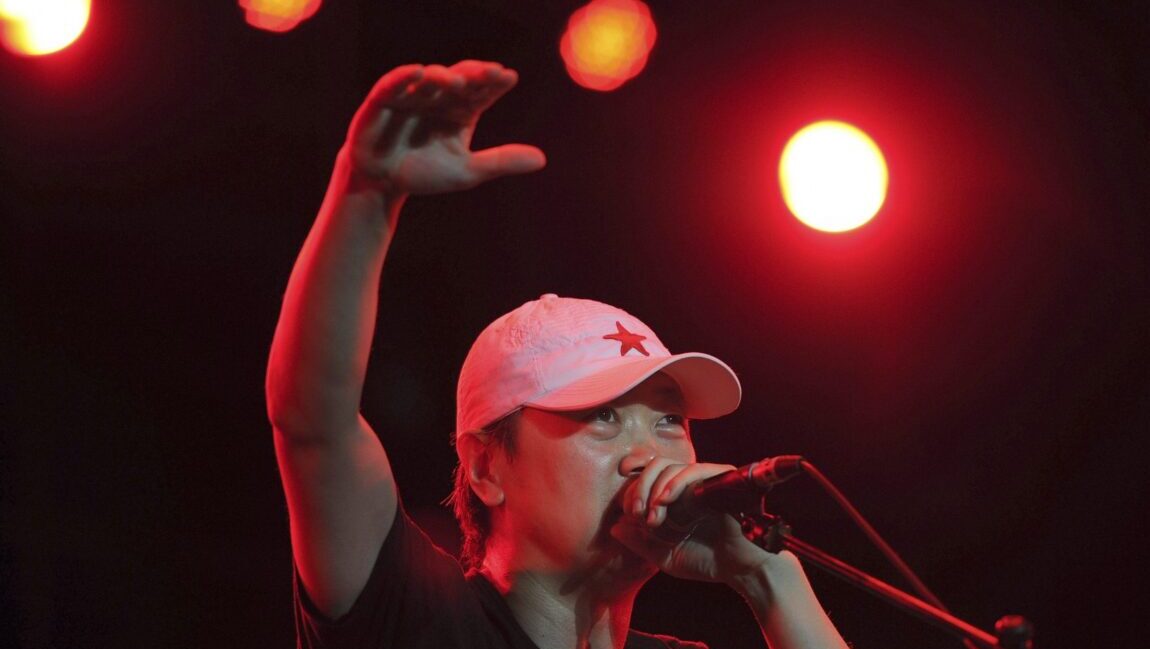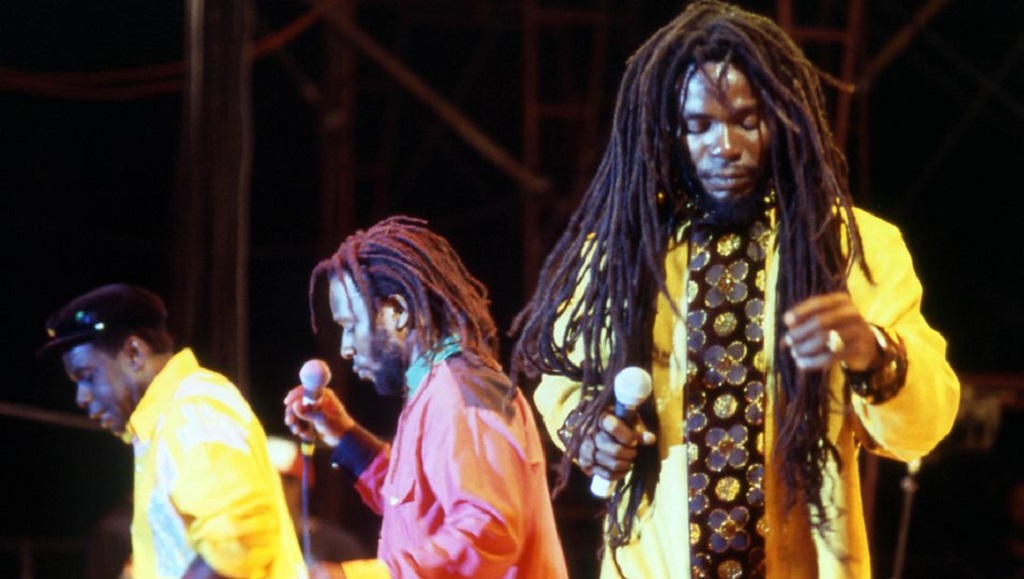Sometime during the tour behind 1994’s Balls Under the Red Flag, Cui Jian started employing the title of his most recent album as the name of his band, as well. This was Cui poking fun at himself, and his bandmates, suggesting a sense of ‘powerlessness’ in their struggle against unassailable authoritarian forces. The name “Cui Jian and the Balls Under the Red Flag Band” didn’t stick; by 1995, the marquees just read “Cui Jian” again. However, the sentiment did — or so it would seem, from the title of Cui’s fourth album. Arriving in 1998, following the longest wait between any of his albums up to this point, The Power of the Powerless (a title swiped from a communist essay by Czech dissident Václav Havel, who is not credited) is a curious effort for Cui. The album was released at a time when the Chinese rocker seemed to be on the cusp of breaking through on the international stage. Cui had just notched two hugely successful tours in Japan, and many buzzed about performances in the U.S., earning him plaudits from tastemaker Claudine Ko in the pages of The Village Voice (the headline: “Raging Against the Regime”) and attention from a then-still-relevant MTV, where his music video for “Wild on the Snow” earned some airplay. Of course, there was still the pesky matter of the language barrier — but then, that never seemed to prevent artists from the Latin diaspora, like Selina or Enrique Iglesias, from amassing huge fanbases Stateside at around this time. It’s not hard to imagine that, had Cui released either of his previous two albums in 1998, he may have been better able to capitalize on his mounting fame; instead, he opted for a release more challenging than any that preceded it — a defiantly experimental set that proved, again, that the regime wasn’t all Cui was raging against.
Some tracks here could slot comfortably into a late-’90s playlist, alongside songs from the Smashing Pumpkins’ Adore or the Prodigy’s The Fat of the Land.
The Power of the Powerless unabashedly embraces two heretofore less relied upon ingredients of Cui’s sound: rapping and experimental electronics. That decision isn’t a problem in and of itself — and, in fact, some tracks here could slot comfortably into a late-’90s playlist, alongside songs from the Smashing Pumpkins’ Adore or the Prodigy’s The Fat of the Land. But there are two big issues here: Cui’s lyrics are mostly a dulled-down retread of those from his earlier recordings (“Words are not precise anymore / Can’t describe the world”), or worse, more cynically dismissive (“These days, money is worth more than any education / Whoever says life is hard is an idiot”); and his melodies are, with alarming consistency, not nearly as memorable as they have been in the past. “The 90’s” has all the elements of a great Cui Jian song: clattering percussion, rousing horn charts, and a propulsive bass line. The only thing missing? The song part. Cui raps his way dutifully through two deeply underwritten verses — both of which are repeated — and forgoes including a chorus entirely. This change feels like an intentional one, and on some of the other tracks here, Cui’s strategy of aesthetics over songwriting actually does pay off: the rambling string of verses that form “Fresh Flesh Rock ‘n’ Roll” organize themselves around Cui’s repeated use of the phrase “rock ‘n’ roll,” in English, at the end of each couplet, emphasizing a sense of linguistic disconnect that resonates within his passion. “Caged Bird” features Revolver-esque backmasked guitars, cleverly articulating its lyrics’ frustration over feeling trapped in times that never change. But the best song here, “Another Space,” is the one that sounds most like it would fit on Cui’s earlier albums, with a soaring chorus (“Suddenly, another space opens up / It is awaiting — awaiting my arrival”) belted over soulful horns, and lifted further by a small choir. “Another Space” is also one of the few songs here with a scale appropriate to its length. Cui has never really experienced this difficulty before, but on The Power of the Powerless, almost every track stretches passed the five-minute mark — and too many of them far overstay their welcome.
Part of Cui Jian: ‘The World That’s Changing Longs Never to Change.’







